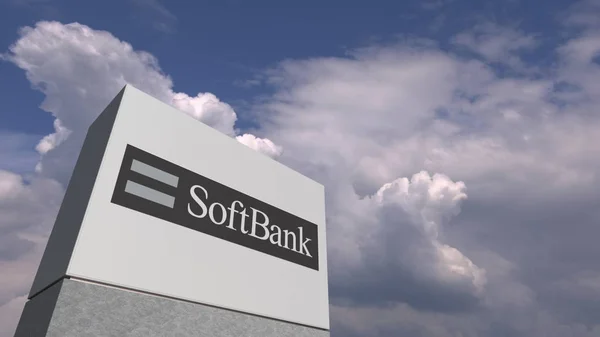SoftBank could lose $74 billion if Arm deal is put on hold
With SoftBank Group Corp.'s sale to Arm Ltd. Nvidia Corp. is in serious jeopardy, the company faces the prospect of losing a jackpot of around $74 billion. And its consolation prize is uncertain.
On Thursday, US antitrust officials sued to block the takeover, arguing it would stifle innovation in the chip industry. Nvidia has promised to move ahead, but the deal is also running into regulatory backlash from the UK, European Union and China, as well as opposition from Arm's own customers, and Wall Street analysts are almost calling the deal dead.
This puts SoftBank in a difficult position. Nvidia agreed to buy the business for around $40 billion in September 2020, and the subsequent jump in the bidder's share price has increased the potential payout by tens of billions of dollars. Other bidders are unlikely to agree to such an offer and could cause their own problems from regulators.

Thus, a better alternative to SoftBank might be an initial public offer for Arm's business, but this would probably bring the company far less value than Nvidia's offer.
"Nvidia's share price has risen a lot since the announcement and that would mean a very good price for Arm," said Somchai Wongrat, an analyst at https://newexness.com/login/. "I don't think Arm is worth what SoftBank thinks it is worth , so I think the most realistic option is an IPO."
SoftBank and Arm are entitled to retain the $2 billion paid to Nvidia on signing, including $1.25 billion in break-up fees, whether the deal goes through or not.
A spokesman for Tokyo-based SoftBank declined to comment.
Arm is a valuable asset in the chip industry. It licenses technology to hundreds of companies, and its technology is used in devices ranging from smartphones to factory equipment to cars, acting as a neutral party. But because of this role, Arm is a hard sell. Its customers want the business to remain independent - they fear this would be impossible under Nvidia ownership.
But there are risks involved in an IPO. It's hard to say how investors would value Arm's business. On average, members of the Philadelphia Stock Exchange's Semiconductor Index have a market capitalisation-to-sales ratio of 9.9 times. Using that ratio, with annual sales of about $2.5 billion, Arm would be worth $19.8 billion - just about 27% of the $74 billion Nvidia deal.
If it is valued at 32 times Nvidia's, Arm would be worth almost $81 billion. But that's a far cry from the fact that Nvidia is currently the star of the semiconductor industry. Sales are skyrocketing, with shares up 146% this year, and it has surpassed Intel Corp. as the world's most valuable chipmaker.
When the deal with Arm was announced on 14 September 2020, Nvidia shares were worth $21.5 billion of the $40 billion deal. The purchase also included $12 billion in cash and another $5 billion if the business met certain financial targets, as well as $1.5 billion in Nvidia shares for Arm employees.
After Nvidia spun the market, the value of the stock in the deal is now more - about $57 billion - than the value of the entire original deal.
SoftBank bought UK-based Arm in 2016 for $31 billion, and the Nvidia deal will generate significant profits at a time when it is facing setbacks elsewhere, such as in China.
Read more: Nvidia's plan to dominate chip design faces criticism
As recently as last month, SoftBank was optimistic about closing the deal.
"I can't make any promises," SoftBank founder and CEO Masayoshi Son said during a conference call in November. But he said he believed the approval process would be "successful".
On Thursday, the outlook deteriorated significantly. According to Citibank analysts, the chances of completing the Nvidia purchase are now just 5%, down from their previous estimate of 50%.
"SoftBank will have to start the sale process from scratch," said Koji Hirai, a Tokyo-based mergers and acquisitions banker.
If SoftBank does hold an IPO for Arm, timing could be difficult. For the moment, the chip industry is shining sunshine. The global shortage has drawn attention to the value of chips, resulting in the Philadelphia Semiconductor Index rising 36% this year, well ahead of the 22% rise in the S&P 500 Index.
But some analysts are concerned that the shares are close to their peak value. A delay of several months while the regulatory process drags on could deprive SoftBank of the opportunity to make the most of Arm in public markets.
The key question is whether growth in data centres, online services and smart devices will continue, allowing chipmakers to avoid the up and down cycles of the past. "Given Arm's vital role at the heart of it all, Nvidia's huge price tag may not be that high," said Matt Bryson, analyst at Wedbush Securities.
"An argument could be made that SoftBank could do better," he said.
Read also: Elon Musk says that for it to become a viable form of payment, the dogcoin fee must come down



